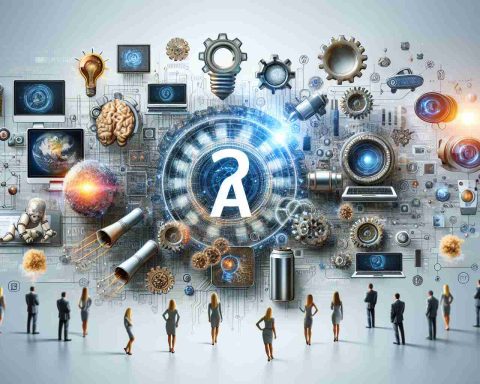A Glimpse into the Future: Today’s world is rapidly advancing with technological innovations such as AI becoming an integral part of our daily lives. Major companies invest billions globally in AI development, from structural planning to ongoing research.
A New Direction: Rather than focusing solely on mainstream AI models, the spotlight is shifting towards the necessity of localized AI models. These models, like the innovative Typhoon by SCB 10X, aim to bridge the gap for languages like Thai, promoting cultural diversity and heritage through advanced technology.
Preserving Cultural Identity: Thai language faces challenges in the AI realm due to its status as a low-resource language. Current large-scale models primarily prioritize English, resulting in limited Thai language data and resources. Localized models like Typhoon offer a deep understanding of Thai language and culture, preventing misinterpretations.
Empowering National Progress: Sovereign AI plays a pivotal role as countries aim to control their AI development. It ensures that national identities and values are preserved in the rapidly evolving technological landscape, preventing the risk of losing control and identity to foreign-developed models.
Building a Global Presence: By investing in localized AI solutions, Thailand can actively participate in the global AI community. Through collaborative efforts in education, research, and policy, the nation can shape its technological future and establish a strong presence on the world stage.
A Unified Approach: The journey towards Sovereign AI requires open-source initiatives, data accessibility, and collaborative research efforts. Models like Typhoon set a valuable precedent for inclusive AI development, fostering a culture of shared progress and innovation.
In embracing localized AI models, Thailand sets a visionary path towards technological self-reliance and cultural preservation, paving the way for a prosperous and inclusive future.
Exploring the Untapped Potential of Localized AI Models: While the focus on localized AI models gains momentum, it is crucial to delve deeper into the unexplored realms of this technological advancement. One important question arises: How do localized AI models contribute to the sustainable development of languages beyond mainstream recognition?
Diving into Linguistic Diversity: The significance of localized AI models extends beyond preserving cultural identity to revitalizing endangered languages. These models hold the potential to revitalize linguistic diversity by providing support for often overlooked languages and dialects. This brings forth the question: How can localized AI models be optimized to cater to a wide array of linguistic variations and dialectical nuances?
Challenges on the Horizon: Despite the promise of localized AI models, key challenges loom on the horizon. One pressing issue is the need for robust data collection and annotation in low-resource language settings. How can AI developers navigate the intricacies of collecting and processing data for languages with limited digital footprints?
The Advantages of Localization: Localized AI models offer a range of advantages, including enhanced accuracy in language processing, culturally sensitive responses, and increased accessibility for non-English speakers. Moreover, these models foster innovation and economic growth by catering to specific regional needs. However, a pertinent question arises: How can the benefits of localized AI models be effectively communicated to stakeholders and policymakers?
Navigating the Disadvantages: Despite their many benefits, localized AI models also present challenges such as scalability issues, increased development costs, and potential biases in training data. Addressing these disadvantages requires a balanced approach that considers both technological advancements and ethical implications. How can developers mitigate biases and ensure the responsible deployment of localized AI models in diverse cultural contexts?
In navigating the landscape of localized AI models, it is essential to address the complex questions, challenges, and opportunities that arise. By exploring innovative solutions and fostering collaboration in AI development, societies can harness the transformative power of localized models for a more inclusive and technologically advanced future.
Suggested related link: SCB 10X

















